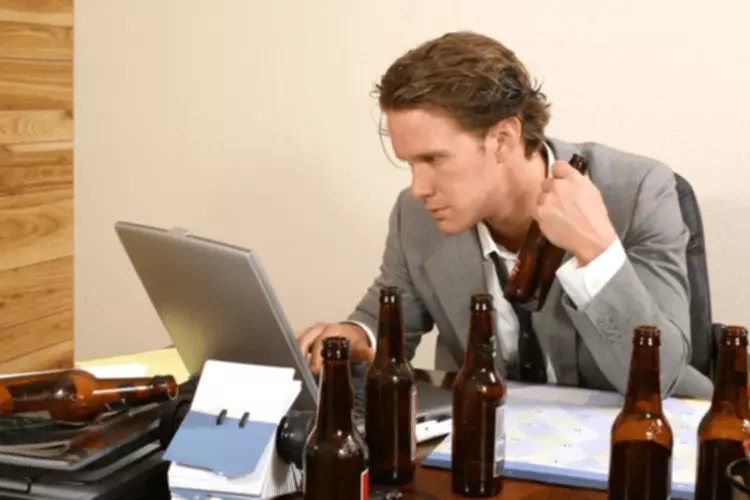
One of the best ways to deal with bored drinking is to anticipate it — why is not always easy. Say your main drinking occasion is when you socialize with friends. A drink or two while bored might make you too tired or too wary of driving to meet your friends. Hobbies occupy the mind and give you a sense of accomplishment.
Alcohol artificially boosts serotonin and dopamine in your brain.
- According to one study, about 25% of people who drink to intoxication don’t have hangovers at all.
- Originally from Chino Hills, California, Chanel began her education at Gonzaga University, majoring in Psychology and minoring in Philosophy.
- Her journey began with crisis intervention for families, evolving into roles in community counseling, corrections, and residential facilities.
- I promise it will do wonders for your mental health, which, in turn, will help you feel motivated to do more things.
- The brain starts to signal the craving for alcohol, not just to seek pleasure but also to restore what it perceives as normalcy.
This proactive approach will empower you to break the cycle of loneliness, addiction, and more loneliness, ultimately leading to a more fulfilling life in the present moment. Once your downtime ends, and you’ve made progress on your hobby or taken a walk, enjoy a piece of chocolate before your next activity. As part of your daily “boredom prevention plan,” schedule a reward for not drinking when you otherwise would.
Start journaling.
Losing relationships to the substance can be challenging but anchoring to others in recovery can be the very thing you need to feel worthy of recovery. Alcohol can be in a unique position of being both the solution to and the cause of pain. Yet, no matter how much pain it causes to the individual or family, alcohol is one of the most difficult substances to remove. There is a strong relationship between boredom, stress, and drug or alcohol use. It’s therefore no surprise that during the pandemic, the rate of alcohol consumption increased among people that reported COVID-19 related stress. The pandemic has been here and, at the time of this writing, is continuing to keep our world in a state of flux.

Myth: You can prevent a hangover by drinking water or using hydration supplements.
- The only triggers that ranked higher are unwinding after a long day, habit, relieving stress, and celebrating something important.
- In response, some people seek outlets that are detrimental to their well-being.
- There are plenty of situations where having a drink is a great way to celebrate an accomplishment.
- Forming healthy connections with other people is an important of this process.
When you remove alcohol from your life, you free up all the time you spent drinking and recovering from drinking. If you ever sit down to do that math, you will shock yourself with how much time went towards drinking. Alcohol robs you of the ability to feel naturally motivated and inspired. Dopamine is another neurotransmitter that is responsible for feelings of pleasure and happiness.
Early sobriety is a drinking out of boredom critical period when community and support networks are critical. This can be hard if your social life previously revolved around drinking. It’s even harder if your loved ones don’t support your sobriety. Let’s address another reason life without alcohol feels boring. If you’ve created an entire social life around drinking, it is natural to be afraid of life without it. When serotonin and dopamine levels are low, we become less motivated and less interested in our surroundings.

Myth: Taking painkillers before bed can help you get ahead of hangover symptoms.
If executed early and properly, boredom will have no opportunity to lead to dangerous experimentation with potentially addictive behaviors. As someone who existed in this headspace for years, I completely sympathize with how hard it is to break out of this rut, which is why this next part is so important. When that’s the case, it’s a sign of deeper problems that need solving. I just wanted to go home and crack open a bottle of hard cider. So I’d move the dinner along more quickly, thank them for hanging out, and dart back home. And when I tried to hang out with people without alcohol, I struggled mightily.

Substance Abuse Treatment Programs

If you quit drinking and experience any new or worsening mental health symptoms, please consider therapy. She typically works with people interested in taking a holistic approach to treating their addictions. This will include healthy eating, movement, meditation, mindfulness and spirituality. Outside of work, she’s a devotee of Krishna, and her friends call her Karunya Shakti, which means compassionate energy. She enjoys singing and dancing in kirtan and reading ancient Vedic literature like the Bhagavad Gita and the Srimad Bhagavatam.
- If she won the lottery tomorrow, Chanel said she start a bookstore with a bakery inside for guests to enjoy their favorite books with an excellent coffee and dessert.
- Therapy and counseling services can provide you with the support and guidance you need, and addiction treatment programs can help you address the underlying causes of your boredom drinking.
- It may require a bit of soul-searching, especially when your motivation is at historically low levels.
Reframe supports you in reducing alcohol consumption and enhancing your well-being. These stories remind us that boredom isn’t merely a state of inactivity or idleness — it can also be a time for reflection, creativity, and unexpected discovery. By seeking professional help, you can find resources to stop drinking and address ongoing issues that can make a huge difference in your recovery.